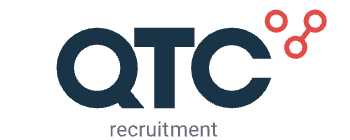Geschreven door manon - 4 Minuten leestijd
Kevin le Noble: Solution found there where less expected

One day I was listening to my client behind the screen of my laptop. An extensive job description was given by the CEO. In my job that is not unusual. Also here, the far and most important requirement for this new special force was clear: ‘Our new colleague must have a medical background and extensive knowledge of the human body. It came down on: ‘What do I want? A medic!’ ‘When do I want it? Now!’. ‘Okay’, I said to my client.
Challenge accepted
My client is an organisation that monitors cells and thereby contributes to the development of vaccines. Knowingly that they had many brainstorm sessions about this new colleague for their team, I resumed: ‘So, in essence the job is about regulating software for tracking and monitoring specific activity within cells? And the information coming from this software can be used by doctors to apply a suitable treatment?’ Yes, that was pretty much the basic line. “Challenge accepted”, I said, and I virtually shook the CEO’s hand.
Ideal situation
Nowadays, I see that there are many discussions among managers in the medical devices industry about what is needed for a new employee. A medical background is regarded as the most important thing. And with this in mind, HR often enthusiastically starts the search for the new vacancy. I understand that. When you are in the position of hiring professionals, what would you want in the ideal situation? But, due to the digitisation in the medical industry, there are certain roles which require different requirements.
Algorithms
What I found out in this specific process is that there is a fine line between working for an ‘extreme digital company’ such as Spotify or Facebook and a company which is monitoring cells like my client. Really! Building algorithms for teenagers who are scrolling endlessly through their social media, is actually comparable with building algorithm for medical devices. It is mostly a translation of what you learned and put in practice to a different branch.
Stanford University
You see this in the whole medical industry. In the last decade, digitalisation has taken a major rise in healthcare. What struck me most was an article by Stanford University: a group of elite doctors started a competition with some artificial intelligence devices about a brain tumour diagnosis. And believe it or not, the artificial intelligence devices not only won in terms of accuracy, but it also diagnosed more cases in less time.
Signed, sealed, delivered
After leaving the meeting with the CEO, with this article in mind, it hit me: Hmmm, a software developer, specialised in building complex algorithms. Thát was the ideal profile for this function. So, I started my search in this direction. And when I had my first talks with potential candidates for this role, I knew I was on the right track. Perhaps they did not know the name of every bone in the human body, but they were all highly educated professionals with a background in software development at prestigious companies.
Impact
The background of the professionals and the business of the organisations they worked at was perhaps not something one would think about in the first place. They didn’t do so either. But after I explained what the role was about and that the impact they could make on someone’s life with their software knowledge could be life changing, was a fact what was attractive for them all.
Drones
At the end of this process, I proposed those several candidates from different sectors. Although these were not the profiles the organisation thought of at first place, the skills of these specialists were exactly what the organisation needed. I was curious how the CEO felt about my selection, and I gave him a call. One of them was a specialist at an organisation acquiring data by using drone footage. Analysing it with artificial intelligence. And just like me he was excited, and this specialist started a couple of weeks later.
Competent
Think about the big chances which are ahead for the medical devices industry when there is a larger group of specialists who are all competent to help the industry construct the revolutionary in medical devices. For me, it was a good example of being focused on doing the job by thinking out of the box. And for the client it was a perfect example where talent and purpose came together.
Solutions
For all those who have innovative projects going on in the medical devices industry, I would say to think out of the box in this candidate-driven market. If you’re interested, I will gladly share more examples where the solution came from a different angle. Done that already but it didn't work for you yet? Feel free to contact me, so we can have a talk about what you need and how we can find your new special force.
